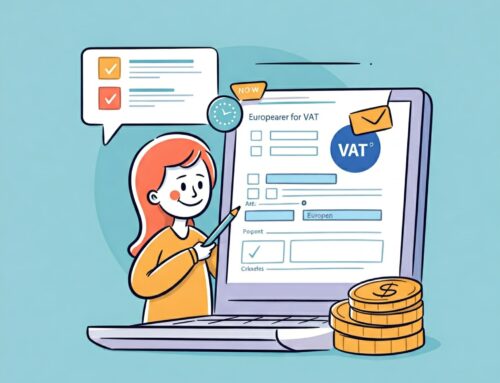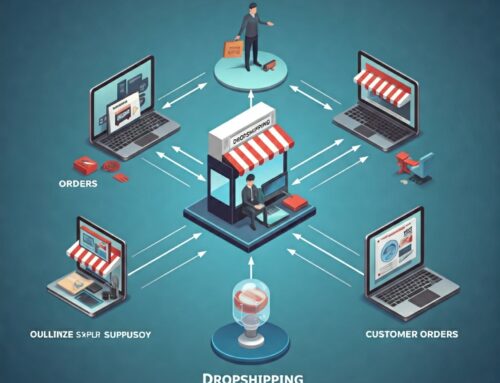This article has been written after the the substantial change in VAT regulation of July 2021.
How to get a European VAT?
Are you an entrepreneur and want to expand into Europe? If this is the case, obtaining a European VAT number is a crucial step. A VAT number, is a unique ID number that allows you to do business in the European Union. In this article we will talk about which countries use VAT, the requirements to obtain a VAT number, the application process, the necessary documents, the cost and what happens after obtaining a VAT number. At the end of this article, you’ll have a clear idea of how to get a European VAT number and you’ll be one step closer to doing business in the EU.
Which countries use VAT?
Starting in Europe means knowing in which countries the value added tax (VAT) is applied. This indirect tax taxes goods and services at every level of production or distribution, and is frequent in countries such as Spain, Italy, France, Germany and the United Kingdom. To obtain a European VAT number, companies must register with the local tax authority, present an identity test and demonstrate that taxable activities will be carried out in the country. Intra-Community operators can also be asked to provide evidence of their transactions.
Once the VAT number is granted, companies must comply with local tax laws and regulations. This includes keeping an exhaustive record, submitting periodic statements and paying timely payment of the VAT due. Failure to comply with these rules can lead to serious sanctions or even legal action. To control the situation, it is advisable to work with a tax professional who knows the applicable laws and can help you meet them. With the right help, getting a European VAT number should be a simple process and give you the confidence to do business in Europe.
The requirements for obtaining a VAT number
To obtain a VAT number in Europe, your company must meet certain prerequisites. Above all, you must register it with the competent tax authorities of the country in which you will be awarded the number. For example, in Spain it would be the Tax Office, while in the UK it is the HM Revenue & Customs. In addition, you must present additional documentation to demonstrate that you meet the requirements.
In addition, your company must have a physical presence in the country in which you intend to apply for the number. It can be a store, an office or a warehouse. This shows that your company is legitimate and will conduct business in the country regularly.
Finally, to obtain a VAT number, your company must meet certain financial requirements. These may include evidence of financial stability, such as bank statements and tax returns. You must also show that you have the necessary funds to operate in the country where you apply for the number. If you meet these criteria, your company will be able to successfully obtain a VAT number and start operating in Europe.
What is the process for applying for a VAT number?
Obtaining a European VAT number requires careful attention and research. To ensure the success of the registration process, it is important to understand the application process and gather all the necessary documentation. This includes documents such as the ID, proof of residence and registration of the company. To ensure accuracy and avoid delays, it is vital to ensure that all information provided is up to date.
When you are discharged, the requirements for obtaining a VAT number may vary according to the country. For the process to be as smooth as possible, it is essential that you become familiar with the relevant regulations. In addition, carefully checking the application and accompanying documents, people can help ensure the success of the Vat register.
What documents are needed to obtain a VAT number?
To obtain a VAT number it is necessary to know the necessary documents. First, a valid identity document, such as passport or DNI, is required. In addition, there is a proof of domicile, such as a utility bill or a rental contract, as well as a tax identification number, which can be obtained by being discharged from the country’s tax authorities. In addition, all financial records, such as bank statements and financial reports, should be submitted to illustrate the tax integrity of the company.
Completing the VAT registration form is also of great importance in order to start online selling in EU. This form requires information on the type of products or services offered, the size of the company and the expected revenue. In addition, the form will require data on company owners, such as names, addresses, and tax identification numbers. It is essential to be precise and thorough when filling out this form to avoid possible delays or problems in the process.
Finally, any documents relating to intra-Community transactions, such as invoices and receipts, must be submitted. This is particularly crucial for companies that carry out cross-border trade within the European Union, as they must demonstrate that they comply with the rules and regulations of the VAT system. By ensuring that all these documents are in law, companies can speed up the process of acquiring a VAT number and ensure that they comply with all relevant rules related to intra-Community VAT.
What is the cost of obtaining a VAT number?
The cost of obtaining a VAT number in the European countries can vary according to the country, the type of company and numerous different variables. In general, the cost can range from a couple of hundred to a couple of thousand euros. It is essential to bear in mind that this cost is paid only once, and that there are no additional costs related to the maintenance of a VAT number.
At the time of applying for a VAT number, it is essential to understand the cost structure. The application fee is usually the main expense you’ll have, and it varies from country to country. Some countries do not charge application fees, while others charge an important amount. In addition, there may be different costs related to the application cycle, for example, legitimate expenses, interpretation costs and other management fees.
It is essential to plan the costs to obtain a VAT number when creating a company in Europe. Spending can be critical, particularly for small businesses. In any case, it is essential to remember that having a VAT number is basic to running a business in Europe. Without a VAT number, you will not have the option to charge customers or guarantee VAT discounts, which can be an important obstacle for your business.
In case you are not sure of the cost of obtaining a VAT number or have doubts about the application cycle, the best thing is to look for a competent advisor. Our Free Online Accounting Consultant can give you the data and guidance you need to ensure that you are fully prepared for the cycle and understand the expenses related to the acquisition of an identification number.
What happens after you get a VAT number?
Obtaining a VAT number is a crucial step in creating a company in the European Union. From now on, entrepreneurs and professionals can negotiate and deliver goods and services without having to pay double taxes. It is essential to present VAT returns on a regular basis and to pay the fees to the relevant tax agency. Failure to do so can lead to serious sanctions, so a meticulous record of every transaction has to be taken.
Maximizing the advantages of a VAT number is possible by returning VAT from purchases for business use. This can refer to various items, such as office material or travel expenses. Knowing the restrictions and documenting each expense, you can reduce the tax burden and improve the flow of capital.
A VAT ID also says a lot of the company’s legitimacy and reliability to customers and suppliers. Especially when dealing with international counterparts, a VAT number demonstrates the willingness to adhere to transparency and accountability. Acquiring a VAT number is therefore an essential step for businesses which are striving to prosper on the European market due to all the benefits associated to this registration.
Conclusion
In conclusion, obtaining a European VAT number is crucial for any company that trades in the European Union. All EU Member States use VAT, and having a VAT number allows companies to trade within the EU, i.e. within the EU, without incurring additional taxes. The process for obtaining a VAT number varies by country, but usually requires certain documents and fees. However, the benefits of having a VAT number more than offset the costs. Following the requirements and applying for a VAT number, companies can ensure compliance with EU rules and facilitate cross-border transactions.






